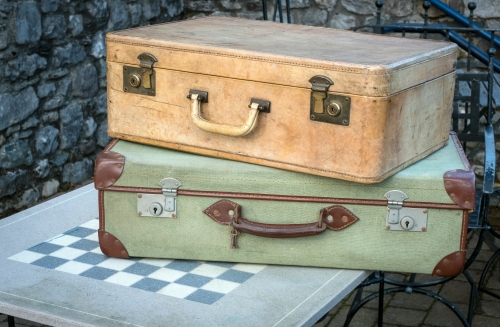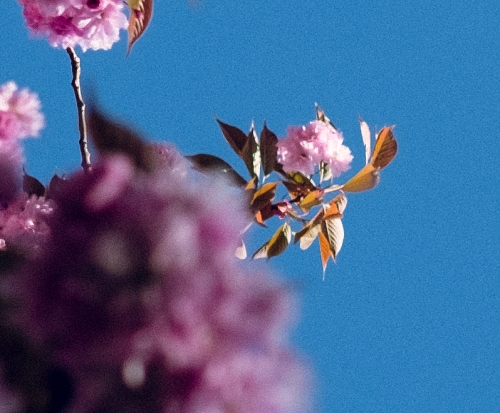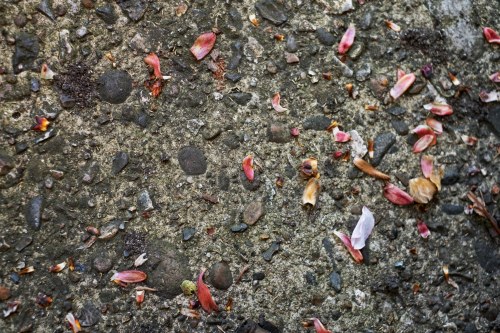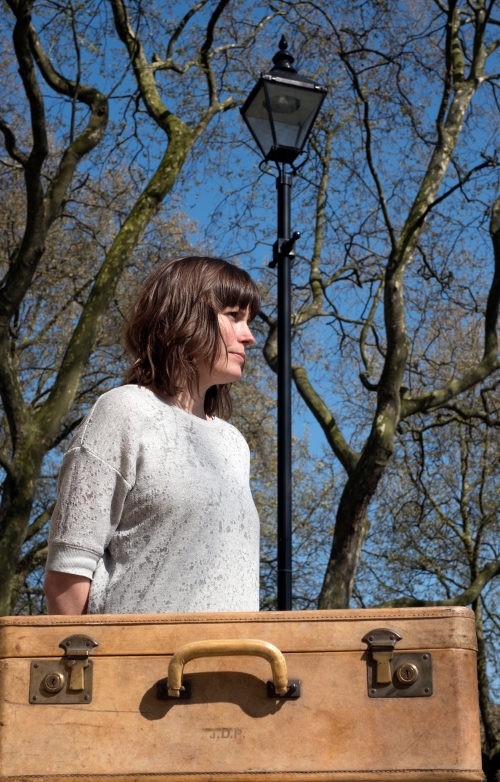
JDP: `Where was the suitcase all this time?’
CSO: `It was placed in the middle of our living room, where it has been ever since. It has been prominent as a piece of furniture, first of all. It’s just so beautiful. I’m a little sad to see it go. It’s become part of the inventory. For me. it was like an empty slate, like Vilja. Empty holders I had to fill. I’m filling Vija with milk. That’s taken over my life. Spatially, I have been feeding her everywhere. I’m feeding her right now, in this park. This has changed my relationship to space because I think in terms of that pub has hard benches to sit and breastfeed on, or where is the next place where I can sit down and give her a feed… When I got the suitcase, I thought that my space would be very confined, but actually I feel that my personal space has broadened out to the whole city. So, I wanted the suitcase also to be filled with the idea of giving life but also of expanding space, changing space by dint of being a mother. ..It took a long time to decide what to put in the suitcase. I thought of nappies. Then I thought of all the pink associated with having a girl. I also thought about the way girl babies are often dressed in slogans, like “Daddy’s Sweetheart”, turning them into little cuties. It’s never powerful slogans. I never liked that. I’ve written over several of those slogans. For International Women’s Day I dressed her up in one of them, but crossed out “Daddy’s Sweetheart” and wrote “My Own Little FIghter”. So, I had thought of filling the suitcase with pink stuff. In the end, however, I decided to be a little bit more conceptual than just filling the suitcase with clothes. It has passed that stage in its life where it just contains clothes.
Inside the suitcase we have breast pads. What you have to bring with you everywhere because your boobs go nuts with milk. On the pads I written the different places in which I have breastfed Vilma. It’s kind of like a breastfeeding map of London.
JDP: `I notice the Norwegian embassy is represented.’
CSO: `The Norwegian Embassy was when we were getting Vilja a passport. I was breastfeeding in line.’
JDP: ` I also notice a lot of pubs here.’
CSO: `I now have a mental map of all the seats in these pubs, the tactile experience of sitting. For example, the Empress has really hard seats. They’re impossible for breastfeeding. I think that was my worst experience. Windsor Castle is great because it has a couch with cushions that you can rest your arms on. My geography of London has changed according to where I am comfortable and where it’s nice to take Vilja.
JDP: `You’ve brought a sense of the body to the suitcase, so that the latter becomes a metaphor for it. Even more interesting is the consequent transformation of this very masculine suitcase, originally belonging to a sea captain, a very dominant male figure. In a way, you have appropriated the suitcase. It becomes another type of body. This makes me associate your relationship to the suitcase with that of a previous collaborator in this project, Omar García. He filled the suitcase with broken eggshells.’
CSO: `Which is very feminine, actually, isn’t it?’
JDP: `And also symbolic of birth, life, death: the life journey.’
CSO: `And the body. I’ve never felt more aware of my body. It’s a machine for Vilja, as well. Now I’ve started working again I have to express milk for her to have. My body is working in all kinds of different ways.’
JDP: ` The types of spaces you visited present an interesting mix. You have everything, from political spaces, like the Norwegian embassy, cultural spaces as well, like Tate Modern.’
CSO: `London Metropolitan University was quite special because I was going there to do a workshop. Vilja was six weeks old and I told them I am bringing my baby. When I arrived I was stopped in the reception and was told it was not allowed to have children on campus, a decision enacted for the first time that day. All kinds of forms had to be filled to gain access.’
JDP: `The idea of thresholds, borders, embassies, airports, passports, is prominent in your contribution to this project. You have also tagged some of the breast pads with ferry and train journeys.’
CSO: `Talking to a lot of women who have recently become mothers, it seems that the domestic threshold of the house gains a new significance, the idea and practice of helping each other get out of the house, because it often takes more effort and organisation, and guts to take out your boobs everywhere. That’s a big threshold for many mothers.’










